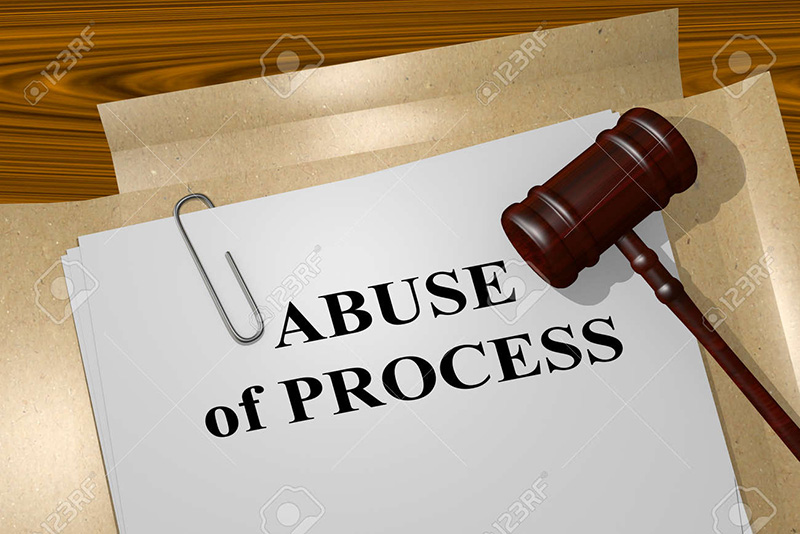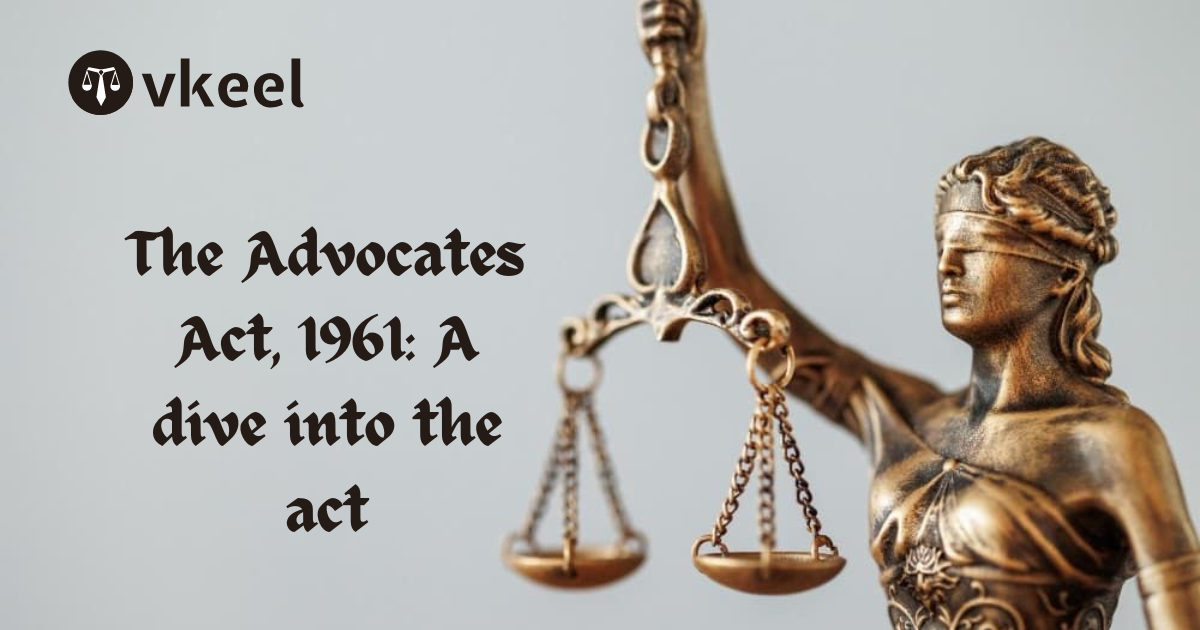Abuse of the process of law: Perspective of Gender justice
By Advocate Anik
“Freedom cannot be achieved unless women have been emancipated from all kinds of oppression” – Nelson Mandela.
Gender inequality in India is a problem from time immemorial. This can be attributed to patriarchy and the internalized misogyny so much so that women do not stand up for each other. Although the country in the recent past has been observed to be developing and changing the narrative surrounding gender and discrimination, the problem still subsists. Education of women and financial freedom of women is considered to be a gateway to move past such inequality. Working women and women in the secondary and tertiary sector contribute to the GDP tremendously. However, sexual harassment in general and harassment of women at workplaces in particular come as a greater evil.
Consult with: Top Lawyers of India
Women are constantly objectified and spoken to and treated as ‘materials’ and are often looked at with the ‘male gaze’. Workplaces are no exception. It is notable that in the case of Vishaka & Ors. Vs. State of Rajasthan & Ors.[1], the Supreme Court held that Sexual Harassment at workplace is a form of discrimination. It was also established that Sexual harassment at the workplace is an affront to the fundamental rights of a woman to equality under Articles 14 and 15 and her right to live with dignity under Article 21 of the Constitution as well as her right to practice any profession or to carry on any occupation, trade or business. Although such provisions have come up, the discrimination through the form of sexual harassment has not stopped. One such recent case is the case of Anuradha Rathour vs. Department of Space[2] on the 30th of June, 2020 before the Central Information Commission at New Delhi.
This case brings about the abuse of the procedural law in relation to sexual harassment at workplaces. In brief, the appellant was harassed at the workplace and a complaint was filed by her. A committee was constituted post her complaint. It was the claim of the appellant that, the members of the committee, who reported to the Accused, gave statements in support of Accused which ICC committee filed as evidence against her and acquitted Accused of all charges and closed the case. The minutes of the meetings were prepared behind her and not shared with her, the responses of the Accused were not provided, the report of enquiry into the allegation of bias against ICC Chairperson was denied. Her repeated requisitions for the case related records – made verbally during enquiries and through written requests to the ICC and to the Director ADRIN and administration – were either not responded to or denied citing Section 16 of the POSH Act. The consistent denial of information by the management and ICC, forced her to file RTI applications to seek information regarding her complaint. The counsel for the appellant submitted that hat due process of law and the process established by law under POSH Act, 2013 and the RTI Act 2005, have been violated, both in letter and spirit and that she was deprived of her right to equality, life and liberty and right to information.
Talk with: Best Lawyers of India
Through the course of investigation, it is pertinent to note that the Vishaka Guidelines laid down by the Apex Court, the statute enacted by the Parliament and the Rules and Policies framed by the Government under Sexual Harassment of Women at Workplace (Prevention, Prohibition and Redressal) Act of 2013, (POSH Act 2013), stipulate the constitution of an Internal Complaints Committee (ICC) comprising an external member from NGO working for the cause of women, to handle complaints on sexual harassment. However, such a committee did not exist within the department of space. Through the submissions of the appellant, it can be observed that the internalized misogyny and patriarchy acted in favour of the accused and the trauma of the woman was completely disregarded. Furthermore, the victim was mentally abused by the ICC members whilst they continued the process in a language unknown to the victim. It has also been brought on record that the transcription and translation of the enquiry proceedings were denied to the victim. The recording of ICC enquiry with Accused was provided to her 2 months after the case was closed by the ICC committee, and without translation. Later, when the recording was translated, the translation of Telugu dialogues in ICC audio recording revealed the conversation among ICC members that established misreporting of facts in the minutes prepared behind her back, bias against her and the collusion of management with the Accused to close the case.
It is also interesting to observe that the management of the department of space punished her by taking disciplinary action against her and ruining her annual performance report which in turn jeopardized her entire career. The commission while dealing with this specific issue drew observations to Punjab And Sind Bank vs Durgesh Kuwar[3], wherein the court quashed an order of transfer of a woman bank employee who had levelled allegations of sexual harassment against her senior officer since this was against the intention behind the POSH act and the dignity of the woman was of utmost priority. Interestingly, the Apparel Export Promotion Council vs. A. K. Chopra[4], was also cited wherein “In our opinion, the contents of the fundamental rights guaranteed in our Constitution are of sufficient amplitude to encompass all facets of gender equality, including prevention of sexual harassment and abuse and the courts are under a constitutional obligation to protect and preserve those fundamental rights.” Interesting observations made by Justice Bhanumati regarding Crimes against Women and Gender Justice were analyzed where she said despite the progress made by women in education and in various fields and changes brought in ideas of women’s rights, respect for women is on the decline and crimes against women are on the increase. Offences against women are not a women’s issue alone but, human rights issue. The increased rate of crime against women is an area of concern for the law-makers and it points out an emergent need to study in depth the root of the problem and remedy the same through a strict law and order regime. There are a number of legislations and numerous penal provisions to punish the offenders of violence against women. This in co-relation with the present case in discussion reveals that the issue of gender justice and sexual harassment of women at workplace was only a topic on the paper and no real efforts were made by the ICC or the Department of Space to neither ensure that the working conditions for women are conducive nor did the victim attain justice.
Consult with: Top Lawyers of India
It is to be brought to the attention that although the absence of ICC was acknowledged in by the then Hon’ble Union Minister for Women and Child Development Smt. Maneka Gandhi ji in her statement, that says – “All the Central Ministries or Departments except Department of Atomic Energy and Department of Space have constituted Internal Complaint Committee in their offices”, no action was taken despite this. This goes to show that the safety of women at workplaces and gender equality were not of priority for these departments. It is also noted that the court in its judgment did not direct either of the departments to set up a permanent committee to deal with complaints with utmost confidentiality and importance. There were also no penalty/charges against the Department of Space for the violation of guidelines laid down by the Vishakha case. Furthermore, the members of the temporary ICC have also not been charged for the abuse of the process of law and for false information recorded. Intervention by the court and making laws more stringent surrounding harassment and ensuring that these laws are followed would be one step towards the process of getting equal justice.
Through this case, the power dynamics between the abusers and victims can be easily portrayed. The process of law is abused so much so that the victim’s career and personal life have been demolished and not to mention the added trauma and mental distress caused to the victim. This demotivates other women to bring up their cases of sexual harassment at workplaces which defeats the entire purpose of the guidelines set in the vishakha case. This also lets abusers and discriminators walk freely while innocent women face discrimination and are having their fundamental rights violated on a daily basis. Furthermore, the case however acts as a ray of hope to women who have been harassed by authorities with respect to their sexual harassment cases. This case also sheds light on the importance to be aware about the procedure relating to justice and the rights awarded to either of the parties. The case is also a perfect example of the stigma surrounding gender discrimination and perfectly complements and adds up to the claim of the paper which is that gender discrimination is a product of patriarchy and internalized misogyny. Thus, this case has brought about the harsh truth surrounding the implementation of laws concerning the sexual harassment of women at workplaces.
Talk with: Best Lawyers of India
Disclaimer:
The information provided in the article is for general informational purposes only, and is not intended to constitute legal advice or to be relied upon as a substitute for legal advice. Furthermore, any information contained in the article is not guaranteed to be current, complete or accurate. If you require legal advice or representation, you should contact an attorney or law firm directly. We are not responsible for any damages resulting from any reliance on the content of this website.












